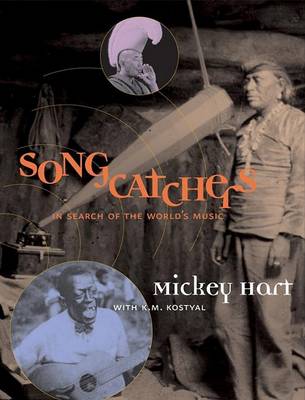On March 15, 1890, ethnographer Jesse Walter Fewkes walked out onto a field in Calais, Maine, and, pumping a foot treadle for power, recorded a Passamaquoddy Indian singing a salutation song. The first field recording of traditional music ever made, the song he captured was heard around the world, creating a revolution in music that continues today. Fewkes, the first 'songcatcher' - recordists who go into the field to capture musical sound - stood at the threshold of the age of modern technology. Others coming quickly after him ventured much farther afield: They recorded the shamanic chants of the Siberian rim; the dying folk music of isolated European villagers; the ecstatic gamelon sounds of Bali; the trance drumming of Africa. They lugged their ponderous gear into the High Andes and to remote Pacific islands. Some of their names are well-known - Paul Bowles, Alan Lomax, Bela Bartok - some are unknown and unsung. They did more than bring back sound. They brought back adventure; they broadened the idea of what music meant and what culture could produce. In Songcatchers, Mickey Hart traces the adventures of these field recordists, as well as his own.
At the same time, he tells the story of the extraordinary developments in technology that made sound capturing possible: How sound waves were first imprinted in wax, then how electric microphones, radio, and other inventions changed the world soundscape. And how, with the advent of computers and the digital age, a recordist can now walk into a remote corner of the globe with nothing more than a pocket-size digital recorder, a few batteries, and a microphone, and capture the world of the rain forest - its peoples, animals, and spirit - for tens of thousands of listeners to appreciate.
- ISBN10 079224107X
- ISBN13 9780792241072
- Publish Date 1 June 2003
- Publish Status Out of Stock
- Out of Print 18 February 2010
- Publish Country US
- Imprint National Geographic Books
- Format Hardcover
- Pages 192
- Language English
